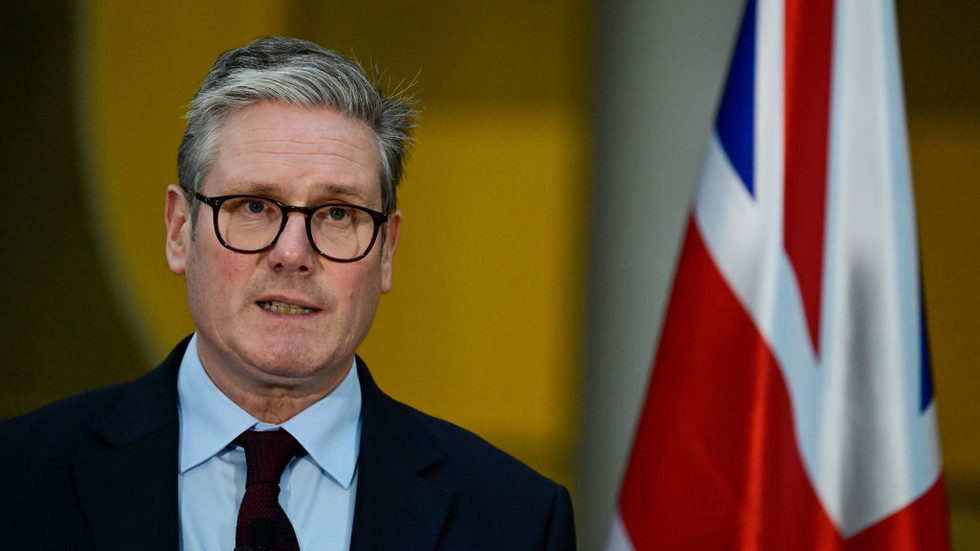British Prime Minister Keir Starmer has confirmed that the issue of reparations for the transatlantic slave trade will not be on the agenda at this week’s Commonwealth Heads of Government Meeting (CHOGM) in Samoa. Starmer’s spokesperson made it clear that the UK will neither offer financial compensation nor issue an apology for the historical injustices associated with the slave trade. The spokesman reiterated that “We do not pay reparations” and maintained that the UK’s position has not changed regarding an apology, which they also stated would not be forthcoming during the summit. Instead, London plans to engage with Commonwealth partners on related issues, but reparations remain off the table. The summit, which gathers leaders from 56 Commonwealth nations, has chosen to focus on broader topics such as climate change, trade relations, and the future of the Commonwealth itself, sidelining the contentious issue of reparations.
The call for reparations has intensified in recent years, especially among former British colonies, with many nations seeking compensation for the atrocities of the transatlantic slave trade. Research from the Brattle Group Report, published by the University of the West Indies in 2023, suggests that the UK could owe an astronomical $24 trillion in reparations across 14 countries, with Jamaica being assessed at about $9.6 trillion. This staggering figure highlights the significant financial implications that reparation claims could impose on the UK, complicating the government’s stance on the issue. The sentiment for reparations has gained traction within the Caribbean Community (Caricom), which consists of 15 member states. At the CHOGM meeting, Caricom leaders are expected to passionately advocate for reparations, signaling a unified front in their demand for acknowledgment and compensation for historical wrongs.
Trinidad and Tobago Prime Minister Keith Rowley has been vocal in his commitment to demanding reparations at the Commonwealth summit. He proactively announced Caricom’s intention to address the issue “very forcefully” during the meetings in Samoa, emphasizing the gravity and urgency of the reparations debate. The ongoing discussions surrounding the issue are indicative of a broader movement that seeks to confront and address the historical and ongoing impacts of slavery in the Caribbean and beyond. The discourse around reparations reflects a growing demand for justice and accountability from nations that benefitted from the exploitation and oppression of enslaved peoples. Member states look towards CHOGM as an opportunity to bring attention to their claims and foster dialogue about compensatory measures for these historical injustices.
Moreover, UN judge Patrick Robinson has commented on the situation, asserting that the UK cannot afford to ignore the mounting calls for reparations any longer. In his remarks from August 2023, Robinson emphasized that compensation for the transatlantic slave trade is not just a moral obligation but one that is mandated by both history and law. His comments underscore the legal and ethical dimensions of the reparations debate, reflecting a growing legal discourse that calls for accountability for historical injustices. Claims for reparations have increasingly been framed within a legal context, pushing governments to reconsider their positions amidst rising international scrutiny. Advocates for reparations argue that the time for acknowledgment and amends is overdue and that inaction perpetuates the ongoing harm caused by these historical injustices.
As CHOGM progresses, the tension between the UK’s steadfast resistance to reparations and the insistence from Caribbean nations for acknowledgment and compensation will be a focal point. The Commonwealth meeting serves as a critical platform for nations to voice their grievances and seek collaborative resolutions, and the reparations debate will likely resonate among the discussions of global issues such as climate change and trade. The legacy of the transatlantic slave trade casts a long shadow over contemporary relationships within the Commonwealth, and the lack of engagement on reparations refracts broader societal discussions about race, justice, and equality. The sentiments aired during the summit may have lasting implications for the future of diplomatic relations in the Commonwealth and the narrative surrounding historical injustices.
The UK’s reluctance to engage on reparations comes at a time when many former colonies are seeking to redefine their relationships with their colonial pasts and advocate for reparative justice. The impact of colonialism and slavery continues to affect societies today, prompting debates about historical narratives and collective memory. By sidelining the issue of reparations, the UK may inadvertently stifle important conversations about racial equity and justice, which are essential for reconciliation. The call for reparations is more than just financial compensation; it involves a reckoning with history and an understanding of its ongoing legacies. As discussions unfold, the effectiveness of CHOGM in addressing these complex matters will depend on the willingness of member states to engage deeply and authentically with their shared histories.
In conclusion, while the Commonwealth Heads of Government Meeting in Samoa aims to address pressing global issues, the omission of reparations from its agenda represents a significant gap in the discourse surrounding historical injustices. As pressures mount from Caribbean nations advocating for reparations, how the UK responds will shape its relationships within the Commonwealth. The complexities surrounding reparations highlight the nuanced nature of post-colonial relationships and the challenges of confronting uncomfortable truths from the past. The ongoing dialogue around reparations is not merely about financial compensation; it demands a holistic understanding of history, recognition of past wrongs, and a commitment to future justice. In order to achieve genuine reconciliation, it is imperative that the Commonwealth engage in open and constructive conversations about reparative justice and address the lasting impacts of colonialism and slavery on its member states.

